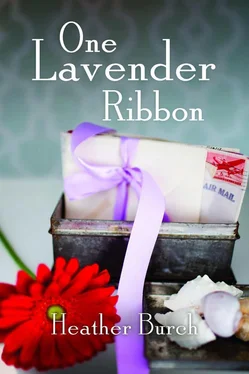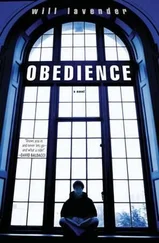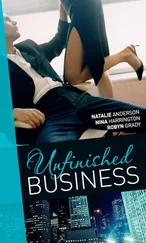“Did they give a reason?” Will asked through gritted teeth and dropped a glass in the sink with a loud clink.
“No.” Pops tried to sound cheery, but his voice cracked, betraying him. He forced a smile. “They didn’t.”
A familiar burn settled in Will’s gut.
Pops brushed a hand through the air. “Their work is very important. I don’t have to tell you that. It’s okay that they can’t come. We’ll still have us a humdinger of a time.”
Will filled the sink with warm bubbly water, keeping his back to Pops because, where his mom and dad were concerned, he had a lousy poker face. They’d let Pops down. Again. How could they do that? How could anyone be so heartless?
In the stark silence that followed, Pops worked to fill the cooler. Will glanced over his shoulder. The slight tremor in Pops’s fingers only allowed for slow meticulous movements while working with small things like sandwich bags and Snack Packs.
“It’s your birthday, Pops.” Will forced out a breath when his anger got the better of him. Peace Corps workers or not, his parents were wrong to devalue Pops’s birthday like this. Two years between visits. Two years . With each passing day, the gravity of Pops’s age weighed. Eighty-one. How many more birthday celebrations did they think he’d be having?
Their trip home from Africa was all Pops had talked about for weeks—making plans, arranging the spare room to their liking. And now, with no explanation, they simply weren’t coming. Will’s fury burned. But letting Pops know how mad he was would only make matters worse. He forced a smile and glanced over his shoulder. “Humdinger, huh?”
“We’ll go to a nice dinner, then maybe hit one of those discothèques,” Pops teased.
“A discothèque?” Will laughed, releasing the anger for Pops’s sake. He crossed the kitchen and hugged his grandfather’s shoulders. “I don’t think so. I’m not even sure they have discothèques anymore. But we’ll come up with something.”
Sun streamed in through the window, bathing them in its light. Pops turned to it, letting it warm him in the cool kitchen. “It’s a beautiful morning. I hope the fish are biting.”
“They’ve never let us down.”
Pops pivoted enough to look Will in the eye. “You’ve never let me down.”
“I hope I never do.”
“Couldn’t happen.” Pops grinned. “You come from good stock.”
The lump, again. The muscles in his jaw tightened. Even if it did skip a generation .
“I’ve got to water the garden before we go. I’ll be back in a few minutes.”
“After all the rain last night, you need to water?” Will held the cooler lid open and looked inside.
“Can’t be too careful,” Pops said. “I planted some new seeds. Thought it’d stay cloudy today, but the sun broke through.”
“And when you noticed it, you thought it would be a good idea to take the boat out alone?”
Pops brushed at the sides of his pants. “It was just a little trip down the canal.”
“Pops, next time I’ll go with you.” Will studied his grandfather’s face. “I’m just trying to protect—”
Pops’s sigh cut him off. “I know, protect me. A man who jumped from airplanes during a war, and I need to be protected from slippery grass.”
“You’d do the same for me. Now, go water that garden.”
Pops nodded. “Right after I change into shorts.” With a spring in his step, he headed out of the room, pausing in the doorway.
Will glanced over, wondering what stopped his grandfather’s momentum.
Without looking back, Pops said, “Love you, boy.”
Will squeezed his eyes shut. All that had gone unsaid over the years about Pops and his war filled the space around Will’s heart and filled the room around both men. Will closed the distance. He didn’t trust his voice to speak without shattering, so he placed a solid hand on each of Pops’s shoulders.
A gentle squeeze created the slightest of tremors through Pops. Pops knew Will was all he had.
Head held high, he stepped away from his grandson and was whistling a tune before he reached the stairs. Through the window, the sun kissed Will’s face.
War was horrific, Adrienne decided, and tried to imagine what it would be like to have someone die right in front of her. Not once, but over and over again. William’s letters were changing her. Altering something deep within. And she was starting to wonder if it wasn’t a good thing. This— this was real life. This was the sacrifice men had made so she could sit around and complain about being lonely or hide in a dilapidated house where the only conversation came from her and the less-than-perfect plumbing. People should live the very best life possible. Too many had died so that others could.
But the letters weren’t all about the horrors of war. They were about Gracie and William’s undying love. All this she’d learned from reading only a few. He also spoke about Sara, Gracie’s younger sister. From all Adrienne gathered, the young girl found trouble around every corner. He talked about Sara getting lost in the dark and stumbling into the neighbor’s chicken coop, waking half the town. She’d escaped with her life, but not her dignity. He told the other soldiers about it, and they spent the evening sharing embarrassing stories and laughing harder than they’d thought possible in the middle of a war. Tell Sara thank you, he said, I knew she wouldn’t mind me exposing her secret. If there’s anything I know about sweet Sara, it’s that if she can bring a much-needed smile to another soul, she will. No matter what the cost.
It was almost noon before Adrienne dressed. She tugged the heavy mahogany front door open and surveyed the world. Yep, another sunny day in paradise. She headed out the door, photo and one of the letters in hand. She could use the advice of a best friend right now. With the windows down, she drove to Sammie’s coffee shop, listening to an indie rock station.
The coffee shop was bustling with customers. She couldn’t have come at a worse time of day. Sammie was behind the counter, taking an order from a young man. Then she ladled up a bowl of soup. She glanced over her shoulder and threw Adrienne a quick smile.
The scent of espresso and homemade stew floated on the air. Chatter from table after table of people surrounded her. The guy took his food and turned directly to her, giving her a long appreciative stare. Adrienne stepped aside so he could get by. He brushed against her as he passed, going out of his way to make contact. Things like that happened to her sometimes, men trying to catch her attention. Since the divorce, she’d had to remind herself, it was okay for someone to find you attractive. She ordered a latte and stood aside while Sammie made it.
Sammie was a tall woman, nearly six feet, and towered over Adrienne’s five-foot-four frame. She wore the long, roomy dresses popular in the sixties. Her feet were always clad in flip-flops, her mop of wavy red hair pulled back in a loose ponytail at the nape of her neck. She was thirty-five years old and attractive, but wore little makeup to enhance her natural beauty. Adrienne had never seen her without dangly earrings that made tiny tinkling sounds as she floated around the coffee shop.
She handed the drink to Adrienne. “Here. Go have a seat. I can join you in about ten.”
Adrienne positioned herself so the guy who’d bumped her—the one who continued to stare while she waited for her drink—was out of her direct line of vision. “Looks like I caught you at a bad time,” Adrienne said when Sammie dropped into the seat across from her.
“I’m making money. As far as I’m concerned, this is a great time. Here, try this and tell me what you think.” Sammie held a napkin out, on which sat a small block of bread.
Читать дальше











